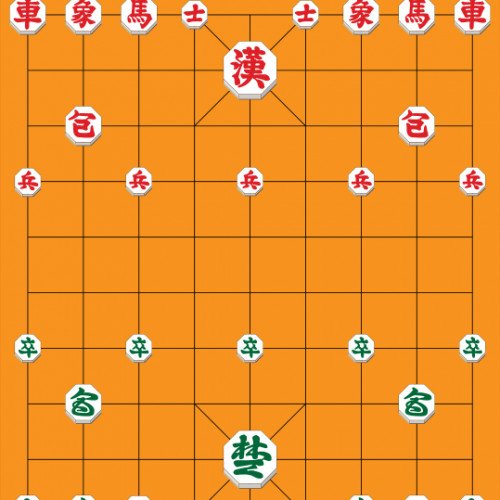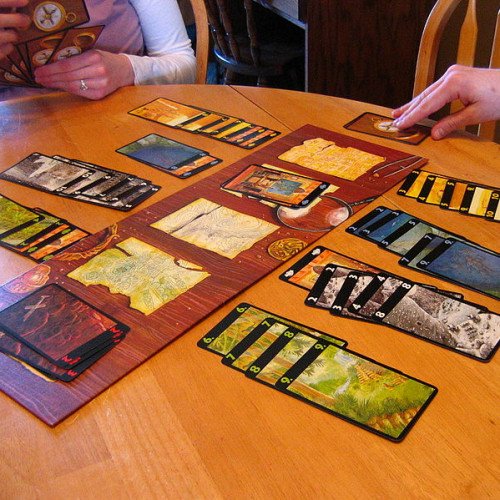JANGGI VS LOST CITIES

JANGGI
Janggi (including romanizations changgi and jangki), sometimes called Korean chess, is a strategy board game popular in Korea. The game was derived from xiangqi (Chinese chess) of China and is very similar to it, including the starting position of the pieces, and the 9×10 gameboard, but without the xiangqi "river" dividing the board horizontally in the middle. Janggi is played on a board nine lines wide by ten lines long. The game is sometimes fast paced due to the jumping cannons and the long-range elephants, but professional games most often last over 150 moves and so are typically slower than those of Western chess. In 2009, the first world janggi tournament was held in Harbin, Heilongjiang China. The board is composed of 90 intersections of 9 vertical files and 10 horizontal rows. The board has nearly the same layout as that used in xiangqi, except the janggi board has no "river" in the central row. The pieces consist of disks marked with identifying characters and are placed on the line intersections (as in xiangqi and Go in China). Janggi pieces are traditionally octagonal in shape, and differ in size according to their rank. The sides are Blue (or sometimes Green), which moves first, versus Red. Each side has a palace that is 3 lines by 3 lines (9 positions) in the centre of their side of the board against the back edge. The palace contains four diagonal lines extending outwards from the centre, forming an "X" shape.
Statistics for this Xoptio

LOST CITIES
Lost Cities is a 60-card card game, designed in 1999 by game designer Reiner Knizia and published by several publishers. The objective of the game is to mount profitable expeditions to one or more of the five lost cities (the Himalayas, the Brazilian Rain Forest, the Desert Sands, the Ancient Volcanos and Neptune's Realm). The game was originally intended as a 2-player game, but rule variants have been contributed by fans to allow 1 or 2 further players, causing Reiner Knizia himself to later provide semi-official 4-player rules. Lost Cities is a fast-moving game, with players playing or discarding, and then replacing, a single card each turn. Cards represent progress on one of the five color-coded expeditions. Players must decide, during the course of the game, how many of these expeditions to actually embark upon. Card-play rules are quite straightforward, but because players can only move forward on an expedition (by playing cards which are higher-numbered than those already played), making the right choice in a given game situation can be quite difficult. An expedition that has been started will earn points according to how much progress has been made when the game ends, and after three rounds, the player with the highest total score wins the game. Each expedition that is started but not thoroughly charted incurs a negative point penalty (investment costs). Interaction between players is indirect, in that one cannot directly impact another player's expeditions. However, since players can draw from the common discard piles, they are free to make use of opposing discards. Additionally, since the available cards for a given expedition are finite, progress made by an opponent in a given color can lead to difficulty making progress in that same color. The game's board, while designed to supplement the theme, is optional and consists only of simple marked areas where players place discards. If Lost Cities had four expeditions instead of five, it could be played with a standard deck of playing cards. When doing so, the face cards would represent investment cards, with numbered cards two through ten serving as the expedition progress cards.